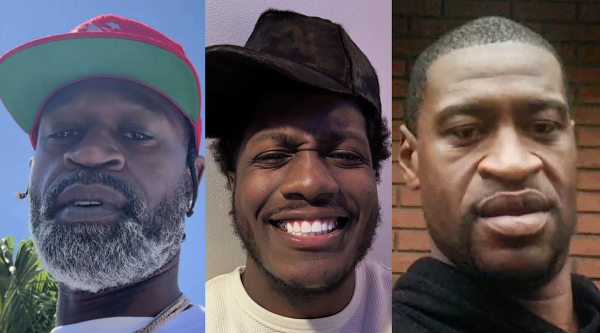Backlash Erupts Over Lil Yachty’s Controversial Lyric Referencing George Floyd
In a livestream collaboration with fellow influencer PlaqueBoyMax, rapper Lil Yachty has found himself at the center of a significant controversy after previewing an unreleased track containing a lyric that references George Floyd. The reaction was swift and intense, particularly from Stephen Jackson, a longtime friend of Floyd and former NBA player, who vocally criticized Yachty for what he deemed disrespectful exploitation of Floyd’s name.
Key Criticism from Stephen Jackson
Stephen Jackson, who shared a close bond with Floyd, took to social media to highlight his disdain for the lyric. In a video response, Jackson stated that referencing Floyd in such a manner was a misguided attempt to gain attention. He expressed his sentiments bluntly, saying, “**Lil Yachty, bro. You been wack, my n*a. You think saying George Floyd’s name in a bar is gonna make people like your music? That’s weak.”
Jackson’s condemnation didn’t stop there. He articulated his frustration over how contemporary artists often invoke the names of deceased individuals, particularly those who have suffered tragedies, claiming, "You all the only era that thinks demeaning the dead is cool. It ain’t.” He emphasized the personal nature of his critique, noting that artists referencing Floyd likely never truly knew him: “None of y’all knew G, nothing about him. But y’all wanna say his name for clout.”
The Personal Connection
The bond between Jackson and Floyd offers context to Jackson’s strong reaction. Having grown up together in Houston’s Third Ward, Jackson often affectionately referred to Floyd as his “twin.” This deep-seated friendship makes Jackson’s passion for protecting Floyd’s legacy all the more poignant and underscores the emotional weight behind his criticism of Yachty.
Public Debate and Artist Accountability
While Yachty has not yet responded to the backlash, the incident has ignited a broader discussion online regarding the responsibilities artists hold when referencing real-life tragedies. This incident has highlighted how creative expression can easily tread into what many perceive as disrespectful territory, sparking debates about artist accountability.
Social media users and commentators are actively weighing in, suggesting that such lyrics not only lack sensitivity but also trivialize the struggles and suffering associated with figures like Floyd. The overwhelming sentiment among critics is that if artists are to reflect on societal issues, they should strive for authenticity and respect, rather than using tragedy as a marketing tactic.
Conclusion: Reflection on Societal Impact
This controversy surrounding Lil Yachty serves as a reminder of the delicate balance artists must strike between creative expression and cultural sensitivity. As society continues to grapple with issues of race and justice, the expectation for artists to approach such topics with care becomes increasingly critical.
The reaction from figures like Stephen Jackson reiterates the importance of recognizing the real people behind the narratives often referenced in music. Lil Yachty’s situation exemplifies how the intricate relationship between art and societal issues can spark necessary discussions about respect, legacy, and the ethical responsibilities of artists.
For those interested, the original livestream featuring Yachty’s controversial lyric can still be found online. The incident’s ramifications will likely continue to resonate in discussions about music and cultural respect for the foreseeable future.









